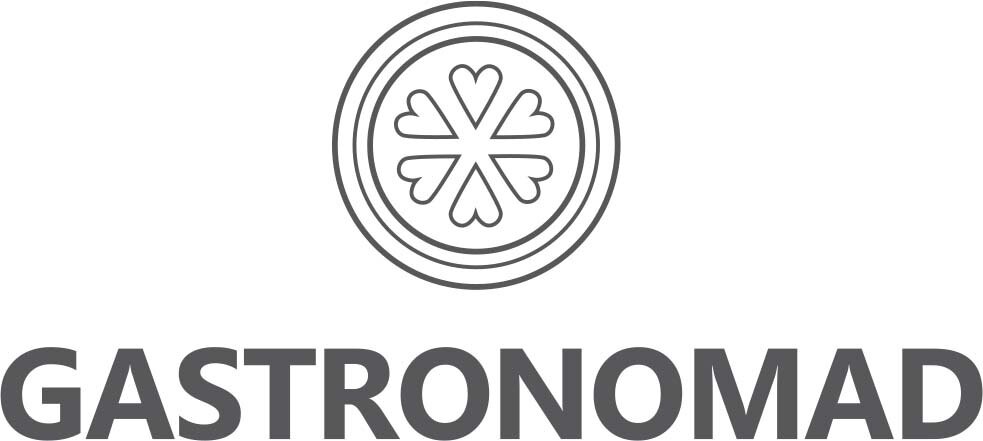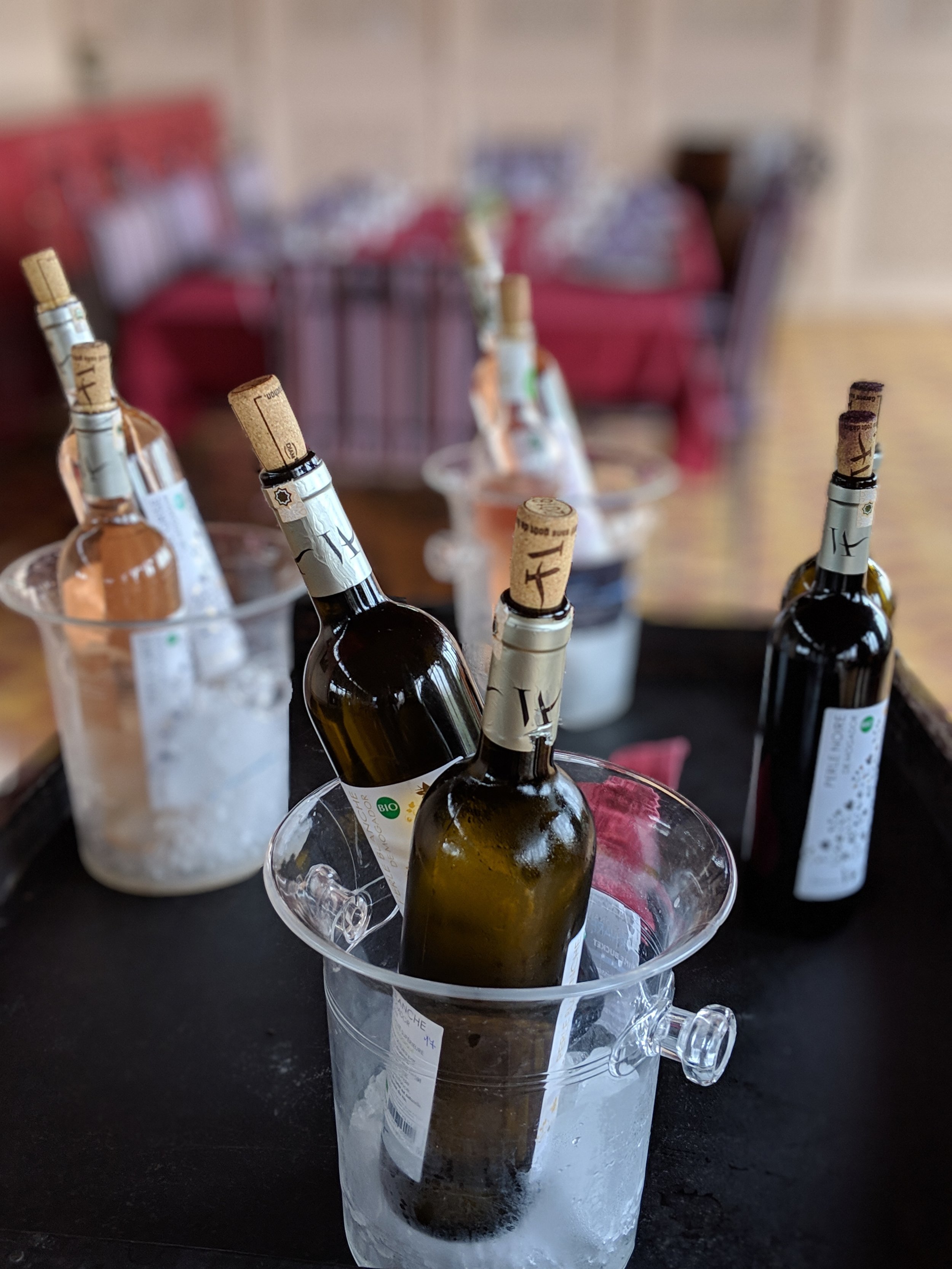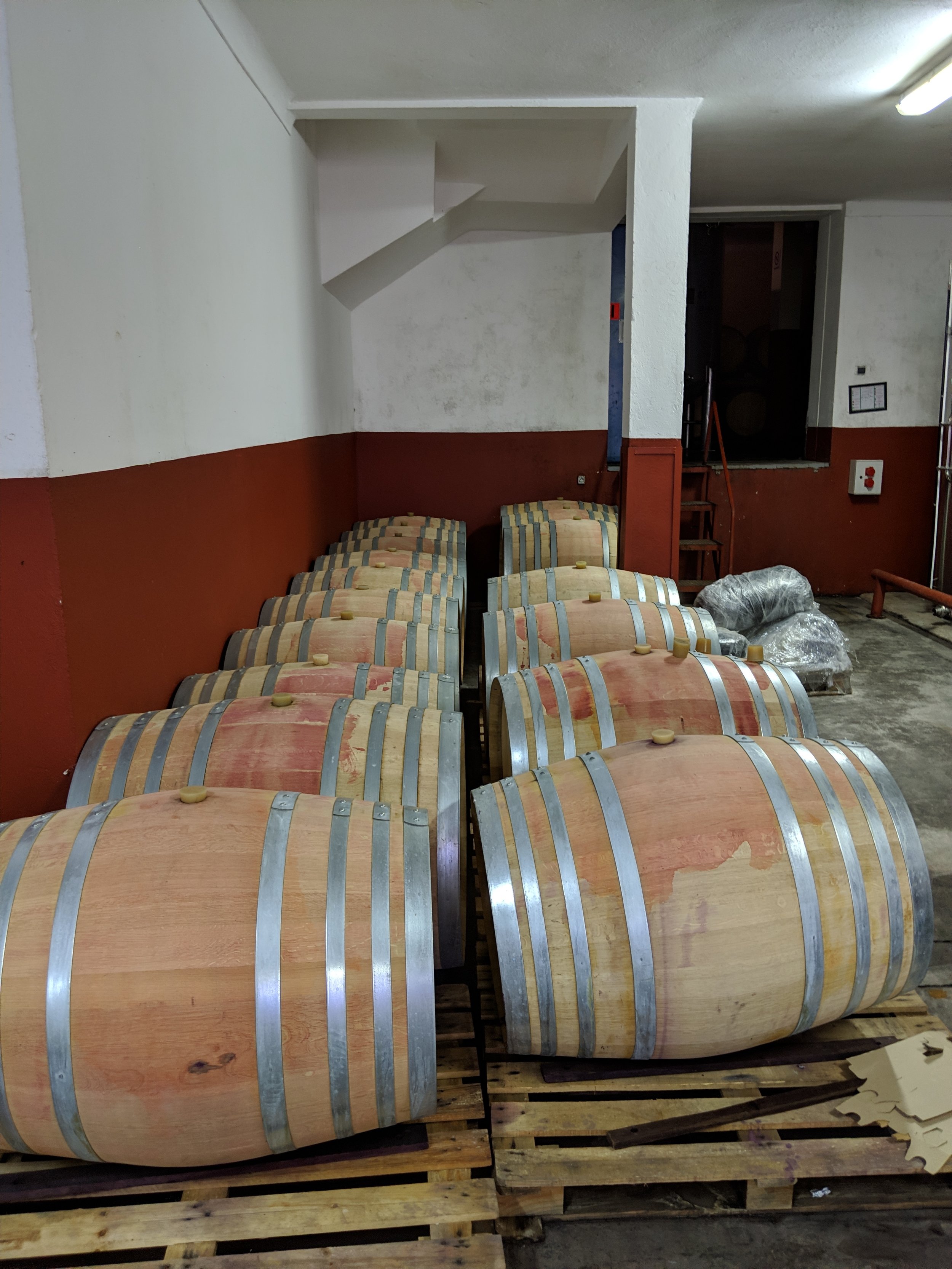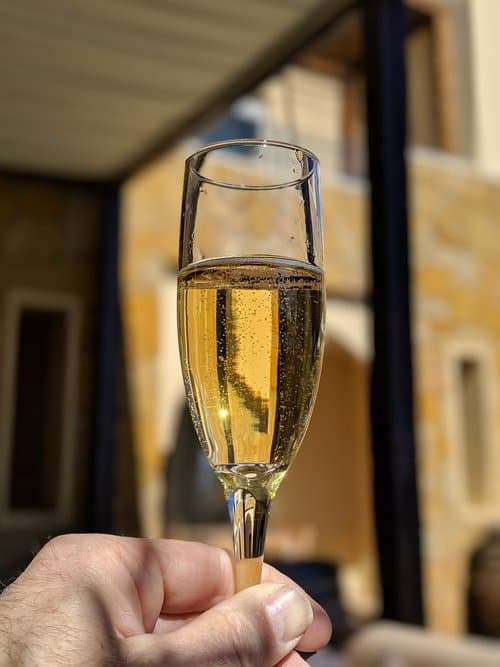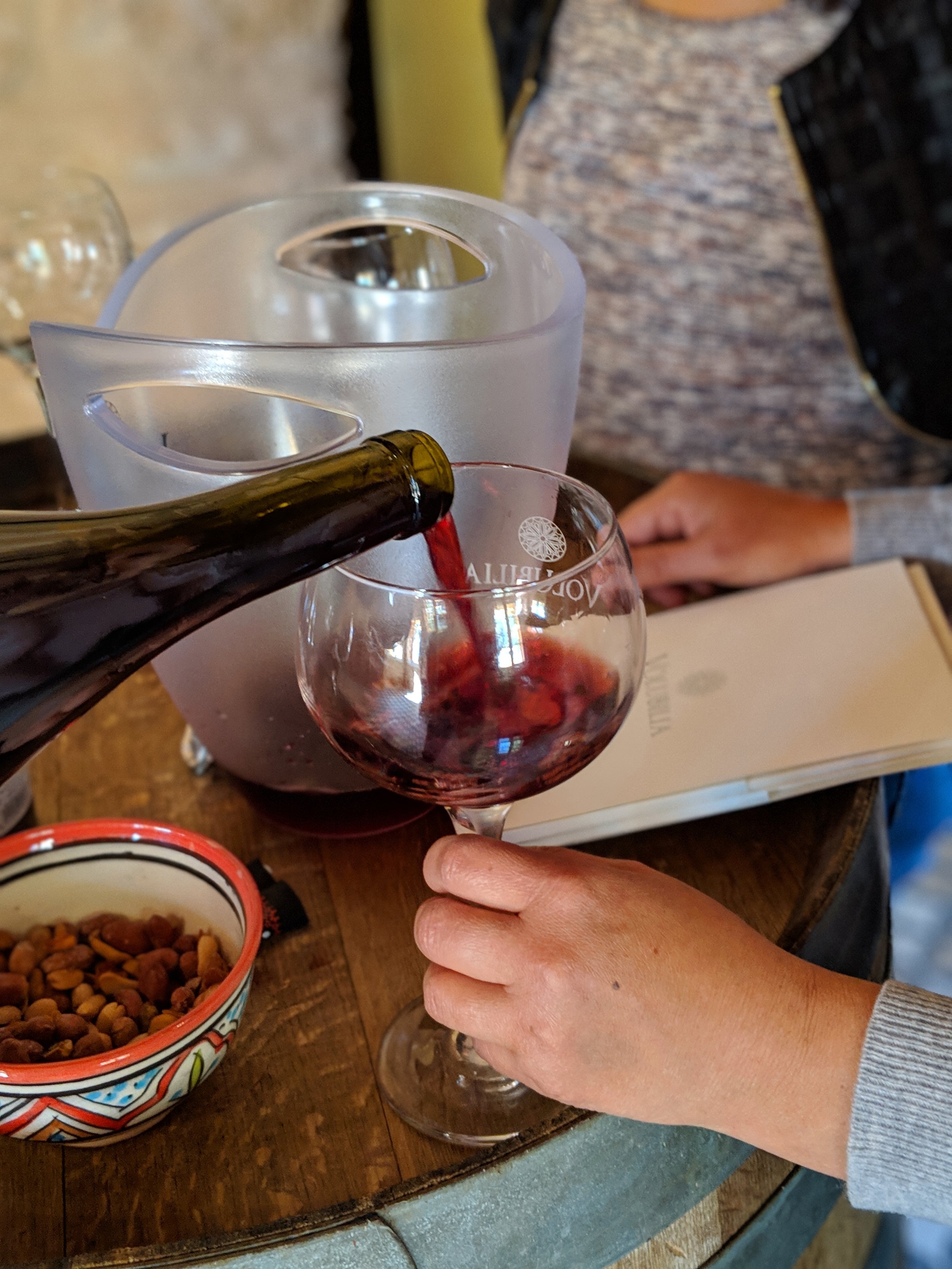We love Morocco, and spend a lot of time there. And we hear a lot about Moroccan wine, and the strained relationship Moroccans have with it.
Morocco is culturally, historically and gastronomically linked to not only Arab and Berber peoples, but also the wine-drinking Spanish and French.
The tension stems from the Islamic ban on alcohol, plus the fact that during Morocco's colonial period, the French controlled about 90% of the country and many people moved from France and planted vineyards.
And tourism. The essential conflict is between Islamic clergy, which apply pressure to stores and the government to completely ban all alcohol, and the economic health of the country -- alcohol is heavily taxed, and it's availability helps attract millions of tourists to the country, a huge source of foreign revenue. Morocco is a tourist destination. More than 12 million visitors come to the country each year. And most of them are from wine-drinking, non-Muslim countries. They come on holiday, and want to drink wine.
Geographically, Morocco is fantastic for growing wine grapes, a practiced probably introduced to the country by the Phoenicians and carried on by the Romans.
And so the country produces a significant quantity of wine, and the quality has been improving since the 1990s with fresh infusions of French winemakers attracted by great climate and cheap land.
Moroccan culture seems to me to be a shame- rather than a guilt-based culture -- which is to say that many of the trappings of Islamic piety are for show, for the avoidance of social stigmatization, more than displays of deep conviction. So while it's extremely rare to see Moroccans ever drinking alcohol, we’re told that "all" Moroccans do drink it in private and hide it, often from their own families.
Moroccans drink alcohol secretly. The alcohol they drink tends to be wine. Many drink wine for the alcohol more than as something to accompany food. We’ve been told Moroccans tend to be indifferent to quality.
It's technically illegal for Moroccans to buy alcohol. But sellers are eager to sell to Moroccans, as long as they don't get caught doing it. Foreign visitors are allowed to buy it, and you can typically find wine in hotels, restaurants and supermarkets. The supermarkets keep all the alcohol in a special and separate area.
The country of Morocco produces a lot of very bad very wine, some good wine and a small amount of truly great wine.
Moroccans generally drink the bad wine and the tourists and export markets drink the good and great.
And while wine is available at wineries, hotels, some better restaurants and at specialty liquor stores, the culture around wine is conspicuously undeveloped.
Amira and I once ordered a bottle of Moroccan wine during Ramadan (when I believe Moroccans mostly stop drinking wine, even secretly). It was a bottle of red from Morocco's wine country around Meknes. The waiter placed the bottle in an ice bucket with no ice. He had a vague idea that wine goes in one of those buckets, but didn't really understand why.
At another restaurant in Fez, we wanted to try a bottle of wine, but were told they sold wine only by the glass. The "glass" for this glass of wine was a weird thick water glass, and not at all suitable for wine.
We took a flight once from Fez to Marrakesh -- a domestic flight within Morocco. Amira spotted an interesting bottle of wine in a shop in the airport. When she tried to buy it, she was informed that it was forbidden to sell wine to anyone traveling domestically (even though wine is available in Marrakesh).
Leaving Morocco once, we had a few bottles of wine to take back to California. Airport security in Fez runs luggage through an X-ray machine as you enter the airport building. They saw the wine on the X-ray screen. They didn't know what to do. Telling us vaguely that it was "forbidden" to have several bottles of wine, they phoned a supervisor. We waited there for 20 minutes or so before being allowed to enter the airport with our bags.
Making wine in Morocco can be a challenge because of the heat. Digging a cellar in the grape-growing areas and storing or making wine there won't give you the temperatures needed for vinification, fermentation and aging. So Moroccan wineries use air conditioners and, in at least one winery we saw, foam insulation glued to the tanks.
Moroccan wineries don't make sparkling wine, with one exception that I'm aware of (a 100% chardonnay that was pretty awful). Only one winery in Morocco makes a sparkling wine, for which they use the champagne method. It’s a unfortunately not drinkable.
French grape varieties predominate, although some wineries are using some obscure grapes from elsewhere. Mostly we've found Carignan, Cinsaut, Alicante, Grenache, Cabernet Sauvignon, Merlot and Syrah.
Moroccan wineries are also unusual because most eschew tasting rooms. They simply don't allow people to come and taste their wine. A tiny number do allow it, but they tend to charge a fortune for the privilege. And the tastings are not really conducted as you’d expect. Not much information is provided on the wine or the production unless you’re lucky enough to be received by the winemaker, which never really happens for the general public.
Fortunately, if you’re part of our Morocco Gastronomad Experience we’ve got you covered! You’ll get to visit all of Morocco's very best wineries, and taste of all the country's best wines.
